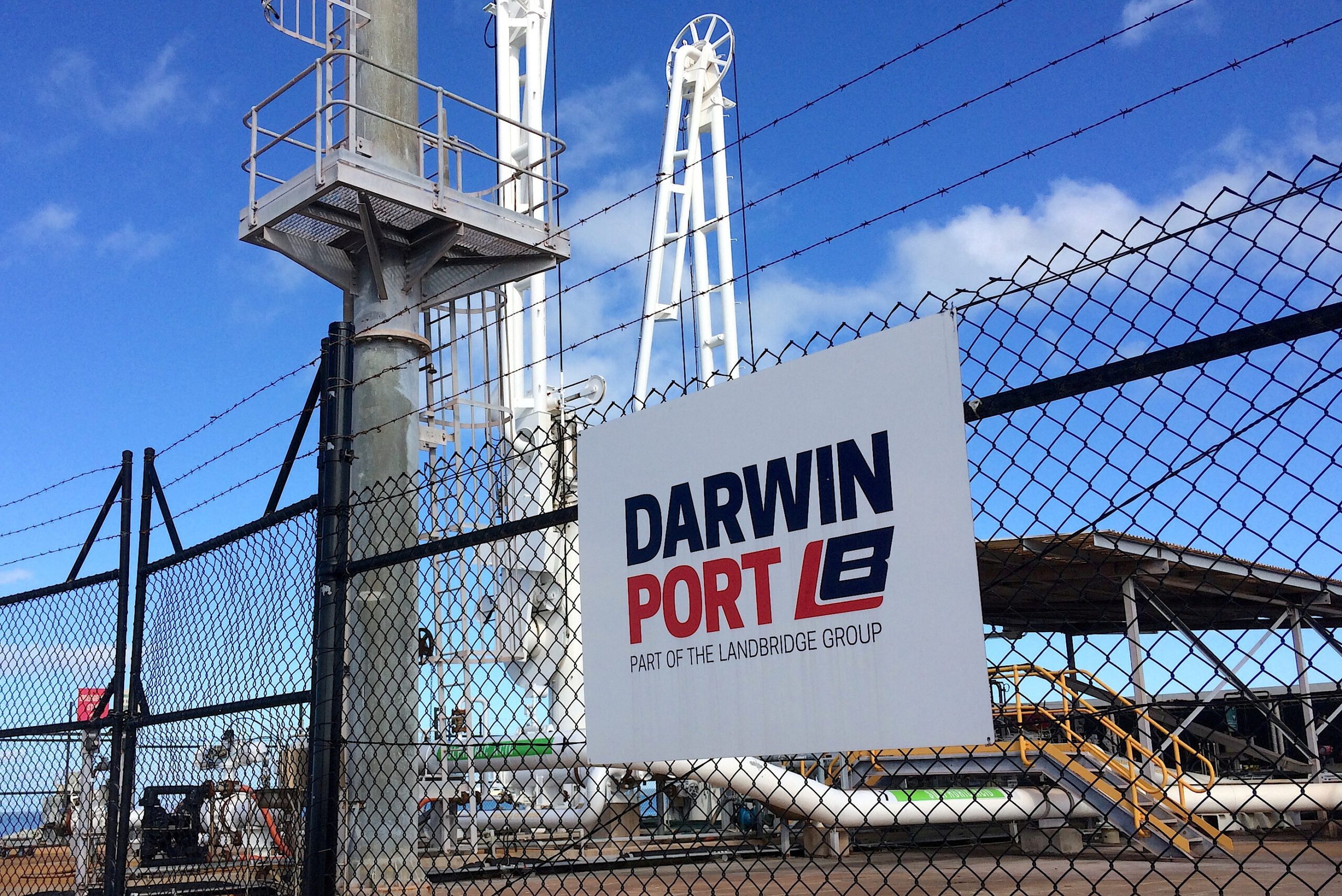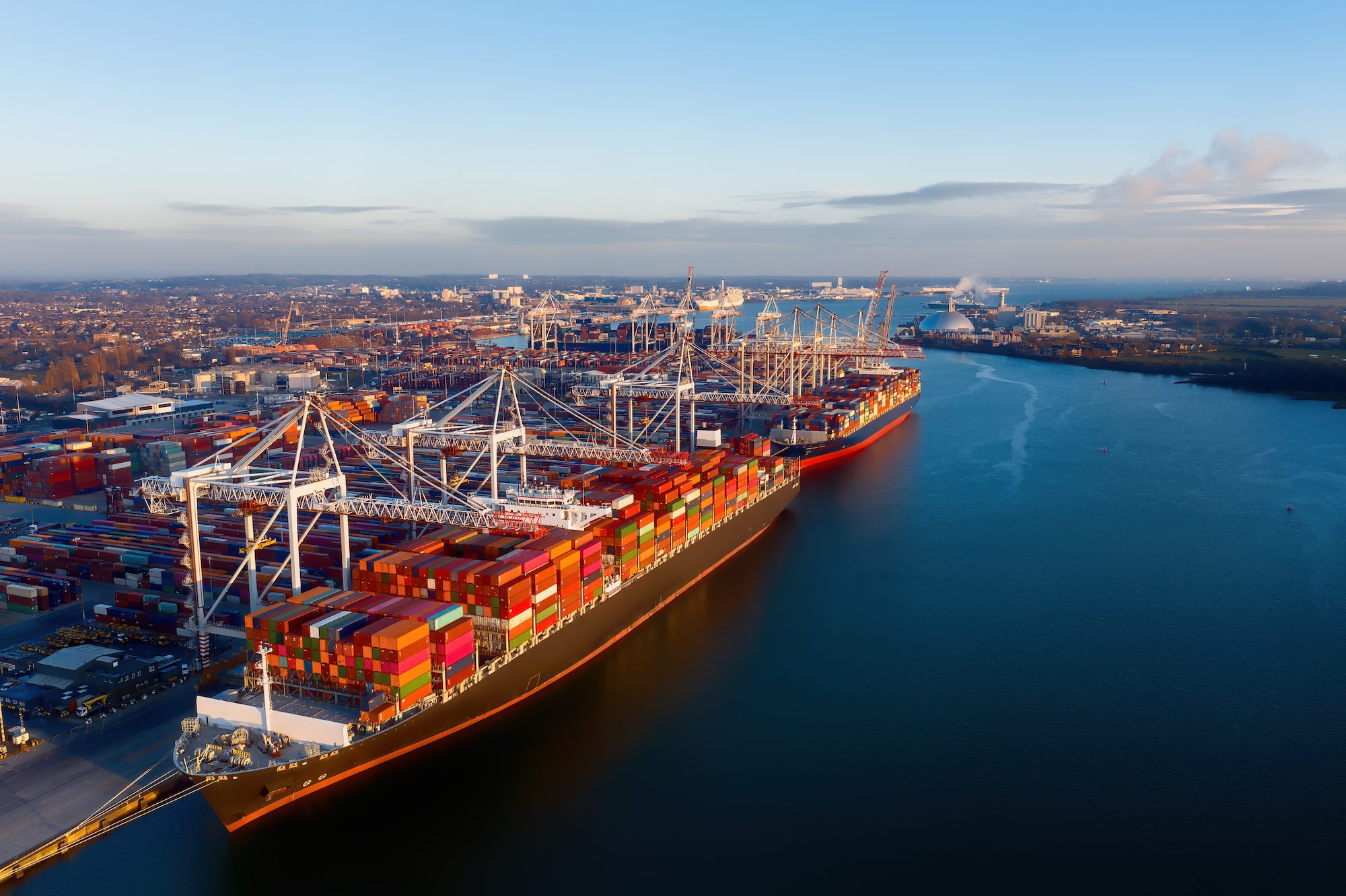By Ben Westcott and James Mayger
May 28, 2025 (Bloomberg) –Prime Minister Anthony Albanese is confronting a fresh diplomatic dilemma with China: How to fulfill a pledge to regain control of a strategic port without jeopardizing improved relations with his country’s largest trading partner.
Ahead of an election earlier this month, Albanese promised to return to Australian control the Port of Darwin from Chinese company Landbridge Group. It was awarded a 99-year lease in 2015 by the Northern Territory government in a move that sparked criticism from an array of politicians in Australia and in the US, which uses a nearby military training facility.
China is Australia’s biggest trading partner by far and previously expressed anger over pressure from the Trump administration concerning the Panama Canal, which resulted in a potential sale by a Hong Kong-based conglomerate of its two Panama port operations — a deal Beijing has said it will review.
Albanese potentially faces a similar backlash from the Chinese government if Beijing perceives it’s being treated unfairly at the Port of Darwin.
“The key is whether it’s a commercial or ostensibly a commercial transaction or not,” said Richard McGregor, a senior fellow at Sydney-based Lowy Institute, who serves on the board of a government body advising on relations with China.
A simple buyout of Landbridge by an Australian company would be significantly less controversial than a sale to a US business or an attempt to cancel the lease and nationalize it, he said.
Read more: Why Trump Wants — But Can’t Have — the Panama Canal: QuickTake
Terry O’Connor, a non-executive director for Landbridge in Australia, said Wednesday there’s been interest among investors in Australia and abroad on whether the port is for sale. They’ve also received calls from international investors, some of whom are in talks with the local administration, about whether the national government’s plan to acquire the port is real, he said.
Like many countries in the Asia-Pacific region, Australia is caught in a bind. The US is the largest single investor in Australia and the country’s main security ally, but China is by far its biggest export market.
High Stakes
China’s government would like for its firms to be able to invest more into Australia, especially in the minerals sector, but Canberra has blocked a series of investment proposals since the two signed a free-trade agreement more than a decade ago.
That raises the stakes for how Albanese manages the port dispute. Bilateral relations collapsed during the pandemic, when China imposed tariffs and trade barriers on Australian goods, but have gradually improved since Albanese first took power in 2022.
Xiao Qian, China’s ambassador to Australia, has warned Canberra to proceed cautiously in its handling of the lease, which he said was awarded to Landbridge “through an open and transparent bidding process.” He made the point of personally visiting Darwin in the past week to press Beijing’s request for Landbridge to be treated fairly.
While Landbridge has been reported to be having financial difficulties, Chinese state media also cautioned against forcing Landbridge to give up the lease.
A Global Times editorial this week said the Australian government should “prioritize the broader picture, uphold the spirit of contract, return to the rule of law, and stop distorting economic cooperation with political bias.”
The port is Australia’s northernmost maritime facility, positioned close to Southeast Asia.
During the election campaign, Albanese raised the possibility of nationalizing the facility in case a private owner couldn’t be found. US private equity company Cerberus held an initial meeting with the Port of Darwin to discuss taking over the lease, while other Australian entities including large pension funds are also running a ruler over the numbers.
‘Far From Ideal’
Since 2001, Chinese firms have increasingly invested in overseas ports. That’s often been portrayed as part of President Xi Jinping’s “Belt and Road Initiative” to build up trade links between China and the rest of the world, according to Zongyuan Zoe Liu at the Council at Foreign Relations, who tracks such investments.
Some of those investments have become controversial or been criticized as a vehicle for greater Chinese influence, although some, such as the purchase of Piraeus Port in Greece by Chinese shipping giant Cosco Shipping Holdings Co., can be seen as a success, she said in a recent interview.
While the Port of Darwin hasn’t attracted the same level of attention from Washington as the Panama Canal, that doesn’t mean that the US isn’t watching closely.
“For many of our allies and partners, the current status quo is far from ideal,” said Luke Gosling, a military veteran and lawmaker for Darwin in Albanese’s Labor government. “That has fed into obviously our decision-making around making that commitment that the Port of Darwin come back into Australian hands.”
© 2025 Bloomberg L.P.

 Join The Club
Join The Club











